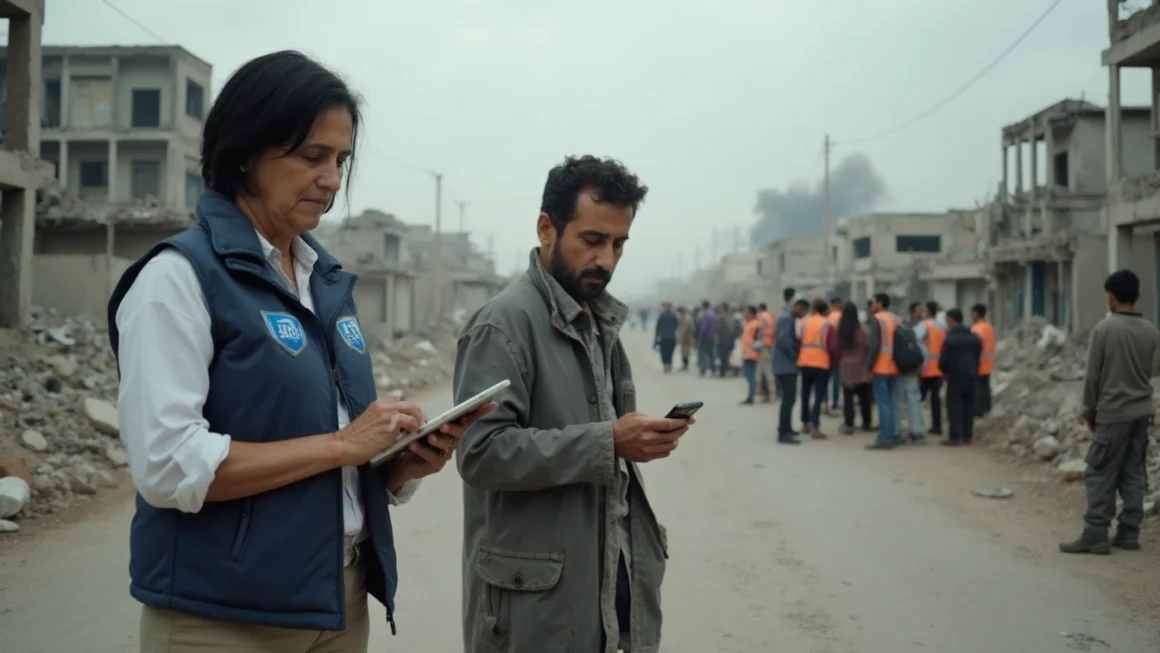The ongoing humanitarian crisis in Syria continues to worsen, prompting UN investigators to issue an urgent call for the protection of evidence related to human rights violations and potential war crimes. As the conflict enters its thirteenth year, the need for accountability and justice becomes increasingly critical.
The Current Situation in Syria
Table of Contents
Syria’s humanitarian crisis has reached alarming levels, with millions of civilians facing dire circumstances. The prolonged conflict has resulted in widespread displacement, food insecurity, and limited access to basic necessities. International aid efforts struggle to meet the growing needs of the affected population.
Key Humanitarian Concerns
- Displacement of millions of Syrians, both internally and externally
- Severe food shortages and malnutrition
- Limited access to healthcare and clean water
- Destruction of infrastructure and homes
- Ongoing security threats and violence
UN Investigators’ Call to Action
In light of the deteriorating situation, UN investigators have emphasized the critical importance of preserving evidence of human rights abuses and potential war crimes. This call to action aims to ensure that future accountability efforts are not compromised by the loss or destruction of crucial information.
The Importance of Evidence Preservation
Protecting evidence is vital for several reasons:
- Ensuring accountability for perpetrators of human rights violations
- Supporting future transitional justice processes
- Providing closure and justice for victims and their families
- Deterring future atrocities through the promise of consequences
The preservation of evidence is a complex task that requires coordination between various stakeholders, including international organizations, NGOs, and local communities. In an era where digital evidence plays an increasingly important role, the use of automation tools can significantly enhance these efforts. For instance, platforms like Make.com can help streamline the process of collecting and organizing digital evidence from various sources.
Challenges in Evidence Collection and Preservation
Despite the urgency of the situation, several obstacles hinder the effective collection and preservation of evidence:
- Ongoing conflict and security concerns
- Limited access to affected areas
- Risk of evidence tampering or destruction
- Lack of resources and expertise in evidence gathering
- Difficulties in verifying the authenticity of collected information
International Response and Support
The international community plays a crucial role in addressing the Syrian crisis and supporting evidence preservation efforts. Key actions include:
Humanitarian Aid
Continued provision of humanitarian assistance to alleviate the suffering of affected populations and create conditions conducive to evidence gathering.
Diplomatic Efforts
Sustained diplomatic initiatives to bring about a peaceful resolution to the conflict and facilitate access for investigators and aid workers.
Technical and Financial Support
Provision of resources, expertise, and technology to enhance evidence collection and preservation capabilities on the ground.
Legal Framework
Strengthening international legal mechanisms to ensure accountability for human rights violations and war crimes.
The Role of Technology in Evidence Preservation
Advancements in technology offer new opportunities for documenting and preserving evidence of human rights abuses. Some innovative approaches include:
- Satellite imagery analysis to document destruction and track population movements
- Blockchain technology for secure storage of digital evidence
- AI-powered tools for analyzing large volumes of data and identifying patterns
- Mobile apps for secure documentation of human rights violations by civilians
Looking Ahead: The Path to Justice and Reconciliation
As the Syrian crisis continues, the preservation of evidence remains a critical component in the pursuit of justice and accountability. By safeguarding this information, the international community can lay the groundwork for future legal proceedings and support the long-term process of reconciliation and healing for the Syrian people.
The call from UN investigators serves as a reminder of the ongoing challenges faced by Syria and the importance of maintaining focus on both immediate humanitarian needs and long-term justice goals. As the situation evolves, continued support from the international community, coupled with innovative approaches to evidence preservation, will be essential in addressing this complex and protracted crisis.
In conclusion, the protection of evidence amid Syria’s worsening humanitarian crisis is not just a legal imperative but a moral obligation to the victims of this long-standing conflict. It is a crucial step towards ensuring that the truth is documented, justice is served, and steps are taken to prevent such atrocities in the future.




